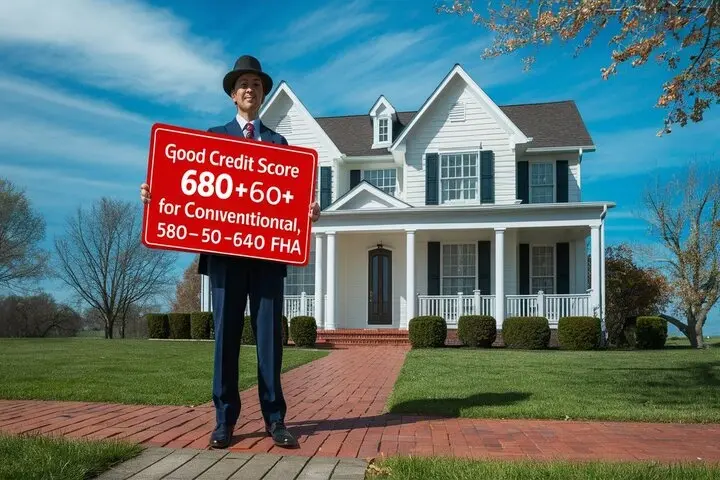-
Posted on: 01 Aug 2024

-
Purchasing a house is one of the significant events that can mark the lives of individuals and families. However, it does not come without some risk and needs to be done after considering your financial position as well as your credit score. There is no doubt that your credit score plays a major role in granting you a mortgage, and its rate of interest. But to which number do banks raise the curtain and say ‘Welcome to the creditworthy bandwagon’ to aspiring homeowners? Please continue reading to know more.
It’s not all about being smart, savvy, and organized, however; you also need good credit.
In a mortgage transaction, applicants’ credit reports and their credit scores are closely examined to determine credit eligibility. Indeed, the higher a credit score is, the greater the chance a borrower will be approved for a mortgage with favorable rates.
Lenders are informed that you are capable of meeting many obligations when your credit score is higher. This makes you less likely for a lender to turn down your application or give you a small loan as most of the requirements are met. On the other hand, a low score on the same range means more risks and this can lead to denial of mortgages or a higher interest rate.
However, it is to be understood that there is no ideal credit score for buying a house and it varies from one state to another.
As for today, the majority of mortgage providers tend to classify any credit score that is suitable for purchasing a home as being 720 or above. However, the requirements that are linked with it may differ depending on the provider.
Here is an overview of credit score requirements:
800+: Excellent credit. Will be able to secure the best loan rates and other conditions.
740-799: Very good. Will most probably be approved and is likely to get good rates.
720-739: Good. It is near the basic credit score required for most of the other normal home-buying programs.
680-719: Fair. May still apply and be granted credit but will not have to pay the lowest interest rates.
679 or lower: Very weak. Will be easy to be turned away from a particular mortgage deal. It follows that subprime loans may be the only available form of credit.
It’s usually between 620-640 for conventional loans specifically the FHA and VA loans which are mainly meant for those with a lower credit standing. But, the MI cost is relatively high when compared to conventional loans and it is paid every year.
In conclusion, passing is achievable with a score in the fair category (680+) whereas the superior terms will be offered to the borrowers with a score above 740. Ideally, it should fall within the 740-800 range, then apply.
This aspect focuses on how mortgage rates change depending on the credit score.
The following illustrates how your interest rate can differ based on credit score tiers, assuming a $250,000 30-year fixed-rate mortgage:
- 800+ credit score: Annual Percentage Rate (APR) of 6, 4.5%
- 740-799 credit score: Year to Date APR of 4.75%
- 720-739 credit score: Annual percentage rate of interest of 5%
- 680-719 credit score: Pay a fixed Annual Percentage Rate of 5.5%.
As the above information indicates it is evident that individuals with higher credit scores can end up paying tens of thousands of dollars less than those with lower credit scores on their lifetime mortgage interest payments.
Tips to Keep in Mind When Buying Your First Home
It is important to note if your credit score is low, it is advisable to work on it even before you start looking for a home. Tips to improve your credit include:
- Pay all bills on time as they are owed
- if any doubts about remembering every month just arrange for automatic payment.
- He recommended that people should reduce their balances and credit card balances.
- Minimize new credit checks by only applying for credit when it is needed
- When you go through your credit report, you need to make sure that you correct any error that is found.
- Maintain previous credit cards or loans active since length of credit history is beneficial
Make sure you look at your credit report for all three major credit rating agencies. It is advisable to give at least six months of working on your credit history to improve before applying for a mortgage.
Make sure that your credit score and all other aspects of your financial status are ready before going to look for a house to buy, as this will ensure that you get the best mortgage when approved. Thank you for reading through this article on home-buying tips, please feel free to contact us if you require more information.
Call now for expert credit repair services: (888) 803-7889
Read More:
What credit score do you need to get 0% interest on a car?
How much income do you need to buy a $250,000 house?
Can I pay a company to fix my credit?
What is the lowest credit score to buy a house?
What is the fastest way to rebuild bad credit?




